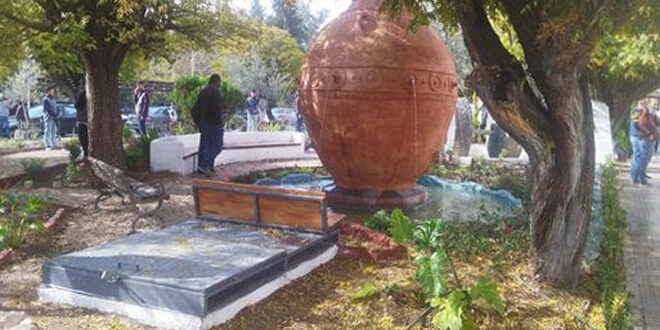With the aim of enhancing students’ connection with nature and agricultural heritage, the ecological “Garden of Hope,” was opened recently at the Faculty of Agricultural Engineering in Damascus University.
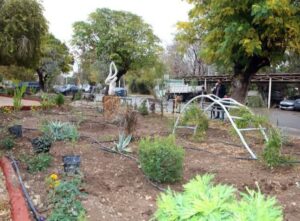 The Garden of Hope is not only a green space, but a pioneering step in linking education, scientific research, and sustainable development to enhance agriculture in Syria and achieve effective strategic partnerships.
The Garden of Hope is not only a green space, but a pioneering step in linking education, scientific research, and sustainable development to enhance agriculture in Syria and achieve effective strategic partnerships.The garden has a philosophical design with an area of 1,200 square meters and contains 10 giant olive trees and a large oil container from which eight water fountains emerge, in addition to a giant olive press that mimics nature in the Syrian countryside.
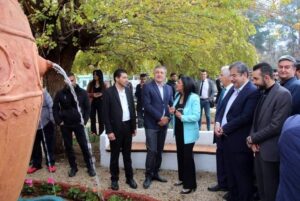 Professor Dr. Muhammad Osama Al-Jabban, President of the Damascus University stressed the university’s keenness over the past years to hold a large number of scientific events and activities in cooperation with various sectors of different specializations.
Professor Dr. Muhammad Osama Al-Jabban, President of the Damascus University stressed the university’s keenness over the past years to hold a large number of scientific events and activities in cooperation with various sectors of different specializations.Prof. Dr. Al-Jabban pointed out that the university has made great strides in the field of international classifications, thanks to the efforts of its students and academic and administrative staff, as it was able to enter the Times International Classification as the first Syrian university and was among the top 5% in the world.
Eng. Muhammad Janan , Head of the Damascus Chamber of Agriculture, confirmed in a statement to the Syriatimes e-newspaper that the garden embodies a plan to revitalize agricultural work in Damascus, calling for more cooperation to revive this sector as part of confronting economic challenges.
He added saying that this type of garden can be implemented in Syria because of its importance, especially since most Syrian cities lack this type of environmental culture.
Janan referred to the possibility of converting the garden into a museum of agricultural and wood heritage items
“ This garden is considered an ideal means of teaching theoretically and practically as well as developing students’ skills and aims to spread an environmental culture concerned with dealing with the environment, the land, and society” Eng. Janan added.
“We seek to generalize the experience of ecological gardens in all governorates and to cooperate with the Ministry of Agriculture and Agrarian Reform , as the ecological garden represents the natural environment of the area in which it is located in a small way .” Head of the Damascus Chamber of Agriculture concluded.
In turn, Professor Dr. Afraa Salloum ,the Dean of Agriculture Engineering Faculty , drew attention to the faculty ’s motto and its main pillar in this achievement which is “Hope through work .”
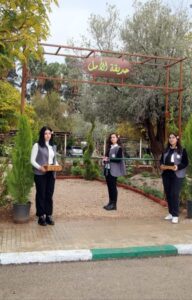 “This garden forms a visual identity for the college. It is considered a model for deepening scientific, applied and research concepts in the field of biodiversity, especially plant diversity” Dr. Afraa said.
“This garden forms a visual identity for the college. It is considered a model for deepening scientific, applied and research concepts in the field of biodiversity, especially plant diversity” Dr. Afraa said.She pointed to the many projects inside Syria in the field of green belts that work mainly to reduce the impact of climate change, combat desertification, stabilize sand dunes, and the current trend towards fruit trees.
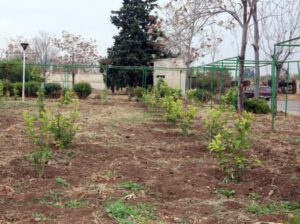
Interviewed by : Rawaa Ghanam
Photos by : Rawaa Ghanam

